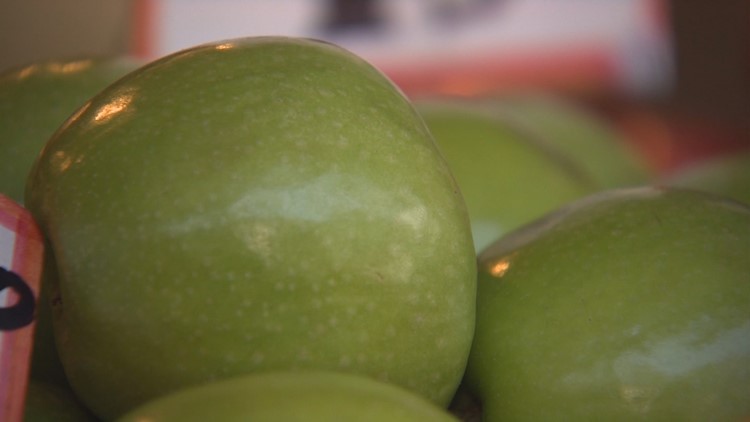Washington apple growers could be among those hit the hardest by a potential trade war between the U.S and Mexico, a top export market for Washington state apples.
The Northwest Horticultural Council estimates apple exports between $200 million to $250 million last year alone, meaning new retaliatory tariffs could leave growers eating the cost.
"It's difficult to divert that volume of fruit to other countries," said Mark Powers, president of the Northwest Horticultural Council, which helps negotiate trade deals on behalf of Washington growers.
“There's a great deal of concern obviously,” continued Powers. “We had hoped there would be a negotiated solution, and we still hold out hope that will occur."
Mexico announced Tuesday it was slapping a 20 percent tariff on apples, along with other agricultural products from the United States. The move was a direct response to the Trump administration's decision last week to impose tariffs on steel and aluminum from Mexico and Canada, as the three countries try to hash out a revised North American Free Trade Agreement.
“The feeling in Mexico is we are working seriously, giving proposals counter proposals,” said Roberto Dondisch, the head consul of Mexico in Seattle.
Dondisch says his country’s negotiators remain at the table, committed to re-negotiating NAFTA and heading off a trade war.
“We don't want to have these tariffs in place, but we have to compensate for the diversion in trade that's going to take place because of the imposition of tariffs,” said Dondisch.
“The day the U.S. retracts its tariffs on steel and aluminum, that's the day we'll retract the other tariffs,” he continued.
While the Trump administration has indicated it’s considering separate trade deals with Canada and Mexico, instead of NAFTA, Dondisch said both Mexican and Canadian officials have made clear they believe in a deal involving all three countries.
“We believe in NAFTA,” said Dondisch. “NAFTA is not only about trade, but a belief in North America as an area of strength.”
However, the timing of when an agreement might be reached is still very much unknown, making long-term planning by growers difficult and impact near impossible to predict.
“If you're trying to put together an export program for next 12 months to move crop, you need stability, and we don't have that right now in this administration,” said Bill Bryant, who works with U.S. exporters.
Bryant says it’s not only tariffs but uncertainty and changing policies that are threatening future business, something that would hit rural and central Washington especially hard.
“These communities depend on international trade; families in those communities depend on international trade, schools that want to pass levies depend on international trade, and we want to make sure our policymakers in D.C. understand that this will have a real impact on the livelihood of people across Washington,” said Bryant.
Mark Powers says it’s too soon to estimate the potential cost to growers, but he points to similar retaliatory tariffs imposed during the U.S.-Mexico trucking dispute in 2010 and 2011.
WATCH: Efforts underway to head off trade war
“During that one year our estimation was a $44 million hit,” said Powers. “That encompasses pricing and volume impacts,” acknowledging the market has changed some since that time.
“If this is a two-week deal; no the impact won’t be bad, but if this goes on for years, it could be as dire as the congressman predicts,” Powers said referencing comments made last week by Congressman Dave Reichert, R-Washington.
Powers, currently in D.C., says he plans to return next week with a small group of growers to meet with administration officials and members of Congress.
In addition to apples, potatoes from Washington would also be subject to the new tariff. Last year, Washington exported nearly $37 million to Mexico alone.
“We will see a reduction in the volume of frozen potatoes going to Mexico. What that looks like I don’t know at this point. It’s all up in the air,” said Matt Harris of the Washington Potato Commission. “There’s a lot of space and time between now and if the administration finds a solution.”



